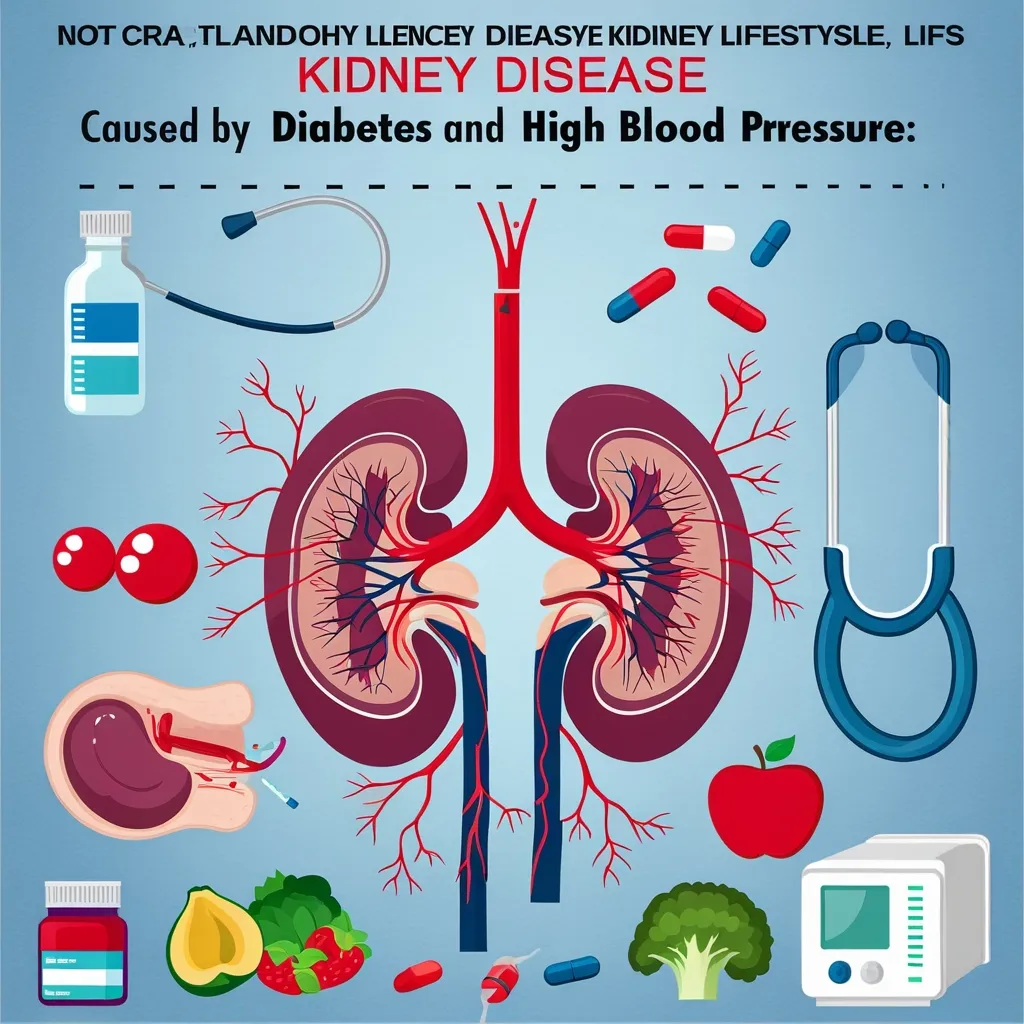Kidney disease is pretty serious, often creeping up because of diabetes or high blood pressure. Getting a grip on the symptoms, how to diagnose it, and the treatment options really makes a difference.
How Diabetes Hits Your Kidneys
Having diabetes means your blood sugar levels can go haywire. Unfortunately, this can mess up your kidneys over time, leading to a condition called diabetic nephropathy. It’s quite common, actually. About a third of people with diabetes end up with this issue, making it the top cause of kidney failure globally.
Diabetic nephropathy sneaks up slowly, often not showing any symptoms until it’s pretty far along. But when it does show up, you might notice swelling in your hands, feet, or face, trouble sleeping, a crappy appetite, nausea, and just feeling weak. And in really severe cases, waste builds up in your blood, causing serious confusion or even a coma.
High Blood Pressure Messes With Kidneys Too
High blood pressure, or hypertension, isn’t any kinder on your kidneys. It can damage the blood vessels and filters in the kidneys, making it tough for them to sift out waste from your body. Sometimes, high blood pressure caused by kidney disease itself is called renal hypertension. It’s what happens when the arteries delivering blood to your kidneys get narrower, usually due to things like atherosclerosis or fibromuscular dysplasia.
Just like with diabetic nephropathy, this kind of kidney disease may not show any obvious symptoms for a while. When it does, you might see swelling, especially in your lower legs, find yourself running to the bathroom at night, or have trouble peeing. As it gets worse, you might lose your appetite, feel nauseous, get drowsy, or experience muscle cramps.
Getting Diagnosed and Keeping Tabs
To figure out if you have kidney disease, docs usually do some blood tests and urine analyses. The blood tests will check for waste products like creatinine and urea, while urine tests look for too much protein in your pee. These tests help show how well your kidneys are doing their job and if there’s any damage.
Folks with diabetes should get urine tests done every year to catch early signs of kidney problems. Keeping an eye on your blood pressure regularly is also super important since high blood pressure can make kidney disease worse.
Tackling and Managing Kidney Disease
Dealing with kidney disease means working on your lifestyle, taking the right meds, and sometimes even going through dialysis or getting a kidney transplant.
Lifestyle Tweaks
Switching up your lifestyle is key to slowing down kidney disease. Here are some changes that help:
-
Change Your Diet: Eating less salt is huge. Salt can bump up your blood pressure, which messes with your kidneys more. Aim for fruits, veggies, whole grains, and lean proteins to keep your blood sugar and blood pressure in check.
-
Get Moving: Regular physical activity—think brisk walks, swimming, or biking—can help lower blood pressure and keep you healthy. Shooting for at least 150 minutes of moderate exercise a week is a good goal.
-
Watch Your Weight: Keeping a healthy weight through diet and exercise takes the load off your kidneys and helps manage blood pressure and blood sugar.
-
Quit Smoking: If you smoke, stop. Smoking can make kidney disease worse and ups the risk of other health issues.
Meds Matter
Medications play a huge role in handling kidney disease. For those with diabetes, drugs like SGLT2 inhibitors, ACE inhibitors, and ARBs help control blood sugar and blood pressure. These meds can slow down kidney damage.
ACE inhibitors and ARBs, in particular, do a great job protecting the kidneys by lowering blood pressure and reducing protein in the urine. They’re often recommended even if your blood pressure is normal because they help ward off complications for people with diabetes.
Dialysis and Transplants
If kidney disease gets really bad, dialysis or a kidney transplant might be necessary. Dialysis is a blood-cleansing process that does the kidneys’ job when they fail. A kidney transplant involves getting a healthy kidney from a donor.
Managing Stress and Finding Support
Living with kidney disease can be stressful, especially if you’re dealing with diabetes or high blood pressure, too. Finding ways to manage stress is crucial—try deep breathing, yoga, or hobbies you enjoy. Connecting with support groups or healthcare pros can offer emotional support and practical advice, too.
Preventing and Catching It Early
Prevention is all about healthy habits and managing other conditions like diabetes or hypertension. Regular check-ups, including blood pressure and urine tests, can catch kidney disease early when it’s easier to treat.
For those with diabetes, keeping blood glucose and blood pressure in check is key. Work closely with healthcare pros to develop a personal treatment plan that hits on diet, exercise, and medication.
Wrapping It Up
Kidney disease from diabetes and hypertension is no joke. It requires close management and lifestyle changes. By knowing the symptoms, diagnostics, and treatment options, you can take steps to protect your kidneys and stay healthier overall. Catching it early and preventative measures are your best bet for maintaining a good quality of life.






